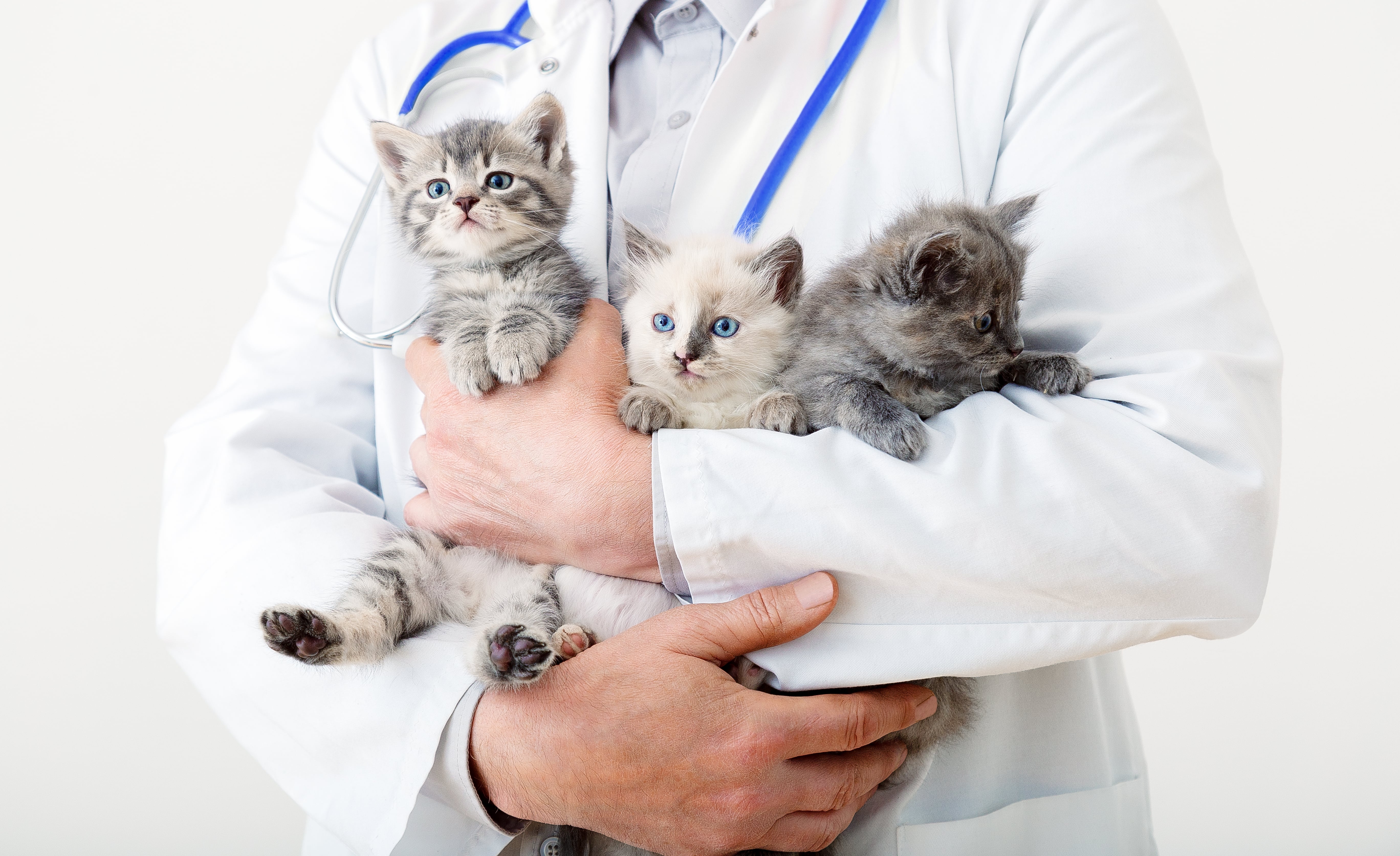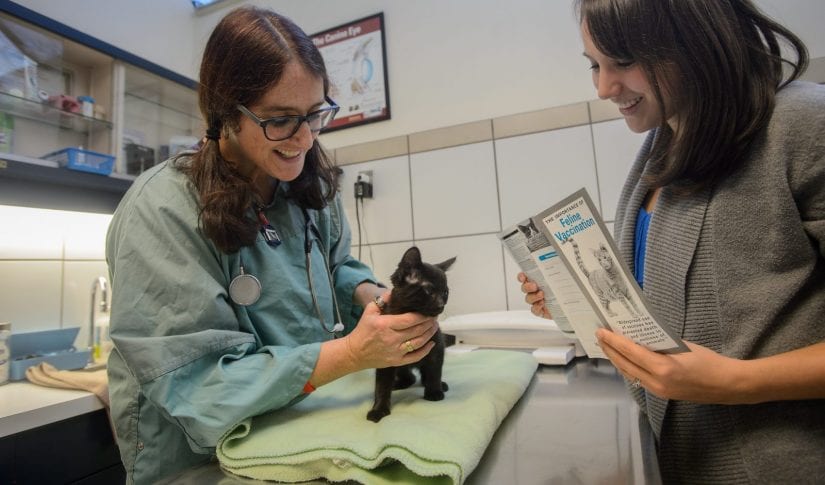Exactly How a Veterinary Specialty Hospital Can Cure Your Pet dog's Disorders With Advanced Techniques
Veterinary specialty hospitals play an important duty in dealing with complex health and wellness issues in family pets. They utilize sophisticated techniques and modern technologies that enhance diagnosis and treatment. With accessibility to specialized services, family pet proprietors can find customized services for their animals' conditions. This elevates crucial concerns about the specific methods used and the benefits they give. Comprehending these elements can notably impact a pet dog's recovery journey.
Recognizing the Role of Veterinary Specialty Hospitals
Main treatment veterinarians give essential solutions for pet health, vet specialty hospitals play a vital role in dealing with complicated medical conditions that call for sophisticated diagnostics and therapy. These facilities are furnished with specialized innovation and skilled specialists that concentrate on particular areas of vet medication, such as oncology, neurology, and cardiology.
Veterinary specialty hospitals facilitate a collaborative approach, commonly operating in conjunction with an animal's main veterinarian to produce complete care plans. They provide access to sophisticated imaging strategies, such as MRI and CT checks, which are not generally available in typical facilities - Learn More. Additionally, these hospitals provide critical care unit for critically ill family pets, making certain continuous tracking and support
Specialized Services Offered by Veterinary Professionals
Veterinary professionals supply crucial services that improve pet dog healthcare, especially via innovative diagnostic imaging strategies. These tools allow exact analyses of intricate medical problems, leading to extra reliable targeted therapy plans. By incorporating these specialized services, veterinary hospitals can substantially enhance person results and total well-being.
Advanced Diagnostic Imaging
Advanced diagnostic imaging plays a crucial function in contemporary vet medicine, making it possible for specialists to acquire in-depth understandings into a pet's health. Methods such as X-rays, ultrasound, computed tomography (CT), and magnetic resonance imaging (MRI) enable vets to imagine interior frameworks without intrusive procedures. These innovative imaging methods aid in identifying a range of conditions, from cracks and lumps to organ problems. By offering clear pictures, they enhance the precision of assessments, which is vital for effective treatment preparation. In addition, specialized veterinary radiologists analyze these photos, making sure that refined concerns are not overlooked. Ultimately, advanced analysis imaging contributes in supplying comprehensive treatment, as it enables early detection and treatment in a pet's clinical problems.
Targeted Therapy Plans
Targeted therapy plans are necessary for dealing with the certain health demands of pets, making sure that each animal receives customized care customized to its special problem. Veterinary specialists create these strategies based upon extensive assessments, consisting of innovative diagnostic imaging and lab examinations. By concentrating on the specific animal's diagnosis, age, lifestyle, and type, experts can prescribe efficient therapies, ranging from medicine changes to surgical treatments. These strategies also integrate follow-up care and checking to track the pet's progression and make essential adjustments. This technique promotes suitable end results and enhances the total quality of life for pets facing intricate wellness obstacles. Inevitably, targeted therapy plans represent a commitment to offering the highest possible requirement of veterinary care.
Advanced Diagnostic Techniques for Accurate Diagnoses
As family pets deal with progressively intricate health and wellness challenges, the assimilation of innovative analysis techniques has actually become necessary for accomplishing exact diagnoses. Veterinary specialty hospitals make use of cutting edge imaging technologies, such as MRI and CT checks, to envision internal structures with impressive clarity. These techniques allow vets to determine problems that might not be noticeable through typical approaches.
Along with imaging, advanced lab tests, consisting of hereditary and biomarker evaluations, give vital insights into hidden problems. These tests enable veterinarians to spot conditions at earlier phases, helping with prompt treatment (Learn More). The usage of endoscopy enables for direct visualization of internal body organs, helping in the diagnosis of gastrointestinal and respiratory issues.
Cutting-edge Treatment Choices for Complex Conditions
Innovative treatment options for complicated conditions in animals have actually become a critical focus within vet specialty hospitals. Making use of innovative diagnostic tools, these centers enhance their capability to determine problems precisely and customize proper interventions. Furthermore, the execution of minimally intrusive treatments and advanced rehabilitation techniques uses pets a far better possibility at healing with decreased pain.
Cutting-edge Diagnostic Tools
While the landscape of veterinary medicine proceeds to progress, innovative analysis devices have actually become essential assets for dealing with intricate conditions in family pets. These innovative technologies, including electronic imaging, ultrasound, and molecular diagnostics, permit veterinarians to obtain exact details about a family pet's health status rapidly. For instance, high-resolution imaging methods can reveal elaborate information of interior frameworks, allowing exact analyses of injuries or conditions. Additionally, hereditary screening provides insights into hereditary problems, guiding customized treatment strategies. By leveraging these innovative diagnostic devices, vet specialty hospitals can boost their ability to identify ailments that might have previously gone unnoticed. Inevitably, these advancements add to improved end results and enrich the general top quality of care given to beloved family pets.
Minimally Invasive Procedures
Developments in vet medication have led the way for minimally invasive procedures, which use brand-new treatment choices for complex problems in pet dogs. These cutting-edge methods, such as laparoscopy and endoscopy, permit vets to perform surgeries with smaller cuts, lowering injury and healing time. By utilizing specialized electronic cameras and tools, vets can diagnose and deal with issues Find Out More like tumors, gastrointestinal conditions, and joint problems with accuracy. This strategy decreases discomfort and causes quicker healing, allowing animals to go back to their regular activities quicker. Vet services. In addition, minimally intrusive procedures frequently result in less scarring and a reduced risk of complications. As veterinary specialty hospitals adopt these sophisticated techniques, pet owners can feel a lot more confident in their pets' treatment and overall health
Advanced Rehabilitation Techniques
As vet medicine progresses, progressed recovery methods are coming to be necessary for managing intricate conditions in pets. These methods include a series of ingenious therapy alternatives, consisting of hydrotherapy, laser treatment, and physical treatment. Hydrotherapy utilizes water resistance to improve wheelchair and reinforce muscles, helpful for pets recouping from surgical procedure or injury. Laser treatment promotes recovery by lowering inflammation and discomfort, promoting quicker recovery times. Physical treatment employs targeted exercises to boost strength and versatility, tailored to each animal's certain needs. Additionally, modalities like acupuncture and chiropractic modifications can additionally sustain recovery by relieving pain and improving overall health. Veterinary specialty hospitals are significantly including these techniques, making sure family pets obtain comprehensive treatment that attends to both physical and psychological recuperation, inevitably boosting their lifestyle.
The Significance of a Multidisciplinary Technique
A multidisciplinary technique in vet treatment substantially enhances the treatment results for pets, as it incorporates experience from various specializeds to resolve intricate wellness problems. This collaborative technique includes vets, specialists, technicians, and support team interacting to create thorough treatment strategies tailored per pet's unique requirements (Vet services). By integrating understanding from fields such as surgery, inner medicine, oncology, and rehab, vets can identify underlying problems that may otherwise go unnoticed
Additionally, this approach cultivates communication among employee, guaranteeing that all aspects of a family pet's wellness are considered. For example, an animal recouping from surgery may take advantage of input from both a cosmetic surgeon and a rehabilitation specialist, resulting in an extra efficient healing procedure. Eventually, a multidisciplinary strategy not just enhances the high quality of treatment but likewise enhances the total wellness of animals, providing them with the very best possibility for a successful recovery and long-term health and wellness.
Cutting-Edge Innovation in Veterinary Medication

With the quick development of innovation, vet medicine has welcomed ingenious tools and strategies that considerably improve diagnostics and treatment choices for pets. Advanced imaging innovations, such as MRI and CT scans, allow vets to imagine internal frameworks with unprecedented clearness, aiding in precise diagnoses. On top of that, minimally invasive medical techniques, sustained by robotic-assisted systems, boost accuracy and reduce recovery times for family pets.
Telemedicine has actually likewise emerged as a vital resource, making it possible for vets to seek advice from pet dog proprietors from another location, thus promoting prompt interventions. In addition, the assimilation of artificial knowledge in assessing clinical data contributes to more effective treatment strategies customized to individual demands. Innovative research laboratory devices enables fast blood analysis and pathogen discovery, fostering prompt clinical feedbacks. As vet specialty hospitals remain to include these improvements, they not only improve the high quality of treatment yet also significantly improve the overall health of pet dogs.
Success Stories: Real-Life Instances of Animal Healing
Many heartfelt success tales show the impressive recuperations of pets treated at veterinary specialty hospitals. One such case entailed Bella, a Golden Retriever identified with an extreme orthopedic concern. After sophisticated surgical intervention and rehabilitation, Bella was not just able to stroll once again yet also to run joyfully in the park, much to her owners' pleasure.
An additional motivating tale attributes Max, a cat with chronic kidney disease. With specialized nutritional monitoring and cutting-edge therapies, Max's problem stabilized, enabling him to restore his power and appetite. His proprietors were thrilled to see him go back to his spirited self.

Often Asked Concerns
What Should I Expect During My Family pet's Specialty Assessment?
Throughout a specialized appointment, family pet owners can anticipate a thorough exam, comprehensive clinical history conversations, analysis tests, and customized therapy options. The vet specialist will supply understandings and suggestions for the family pet's particular wellness demands.
Just How Can I Find a Veterinary Specialty Hospital Near Me?
To discover a veterinary specialty hospital nearby, one can utilize online search engines, check local directories, or look for recommendations from key vets. Furthermore, animal proprietor discussion forums can supply useful insights and experiences concerning nearby centers.
Are Specialty Provider Covered by Pet Insurance Policy?
Specialty services might be covered by family pet insurance, yet protection differs by plan. Proprietors need to very carefully assess their insurance coverage strategy information and consult their company to recognize the level of coverage for specialty vet solutions.

How Much Time Will My Animal's Therapy Take?
The duration of a pet dog's therapy can differ substantially, frequently ranging from a couple of days to a number of weeks - Veterinary. Variables influencing this timeline include the certain condition, treatment type, and the family pet's overall wellness and response
What Are the Prices Connected With Specialty Veterinary Treatment?
The costs related to specialty veterinary care can vary widely, normally ranging from hundreds to hundreds of bucks. Factors influencing these expenses include the complexity of the condition, called for treatments, and analysis procedures needed for efficient care.
Veterinary specialty hospitals play a necessary duty in addressing complicated health concerns in family pets. Main care veterinarians give important services for pet health and wellness, vet specialty hospitals play a crucial role in resolving intricate medical problems that call for advanced diagnostics and therapy. Veterinary specialty hospitals facilitate a joint technique, commonly working in conjunction with a pet dog's primary veterinarian to create comprehensive care plans. Ingenious treatment options for intricate conditions in animals have arised as an essential focus within vet specialty hospitals. A multidisciplinary approach in veterinary care greatly improves the therapy end results for animals, as it integrates knowledge from various specialties to attend to intricate health and wellness problems.